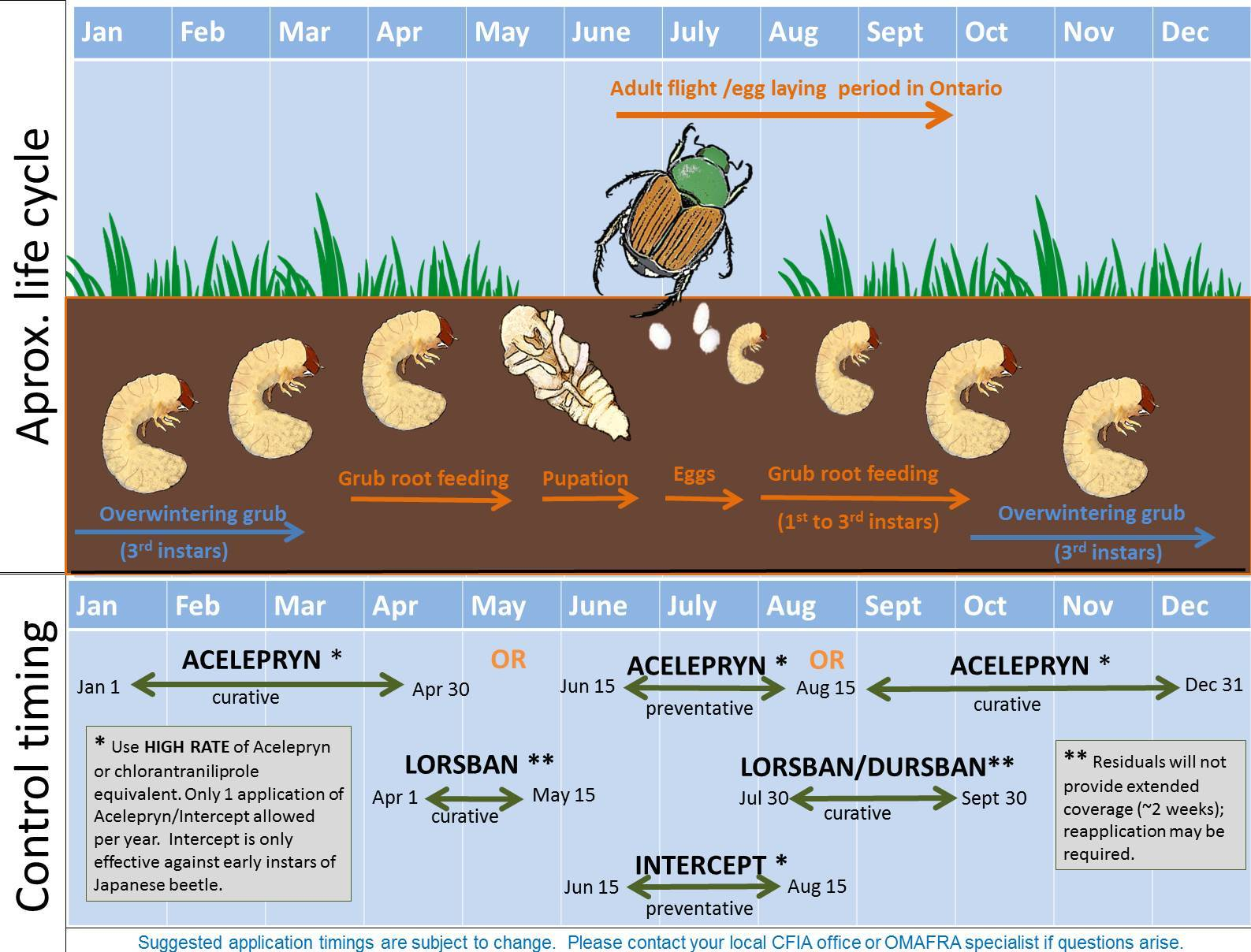The Life Cycle of the Japanese Beetle and the Pesticides that Kill Them
- by
- Gene Caballero
- July 05, 2022
It’s no secret that Japanese beetles can be a menace. Much like other invasive beetles such as the emerald ash borer. Japanese beetles can be difficult to get rid of and can do a lot of damage too! Fortunately, there is no shortage of pesticides to disrupt their lifecycle. As this infographic explains.
What is the lifecycle of the Japanese beetle?
Look the life cycle of the Japanese beetle is much like the cycle of many other beetles. In the summer around June or July, full-grown beetles will lay eggs. Shortly after the egg will hatch and give rise to grubs. These grubs will begin to eat the roots of plants and overwinter as a grub. In the spring around March or April, the grub will pupate and arise as an adult beetle, who will again lay eggs and start the cycle over again.
When is the best time to apply Japanese beetle insecticides?
Well, it really depends on the type of pesticide you use. But there are pesticides for all times of the year. Insecticides like Acelpryn can be applied in the winter months. While pesticides like Lorsban can be applied in the fall or spring. Dursban can be applied in the fall. And Intercept is best when applied in the summer.
What pesticides are best for stopping Japanese beetle eggs from hatching?
Acelepryn and Intercept are good at killing Japanee beetle eggs. These pesticides act as preventatives that will kill Japanese beetle eggs before they are able to hatch into larvae. Whichever pesticide you use be sure to wear the proper protective equipment.
Japanese beetles are troublesome pests with a life cycle similar to other beetles. They lay eggs in summer, which hatch into grubs that feed on plant roots and pupate in spring to become adult beetles, repeating the cycle. Various pesticides, like Acelpryn, Lorsban, Dursban, and Intercept, can be used at different times of the year to control them. Some, like Acelpryn and Intercept, can prevent the hatching of beetle eggs. Choose the right pesticide based on the beetle's life cycle stage
There are pesticides that can kill Japanese beetles during any part of their lifecycle. As you can see from this infographic the type of pesticide you will need to use will depend on the part of the life cycle the beetle is in. For more great info on caring for your home and lawn check out our lawn care blog.
Powered by Froala Editor










